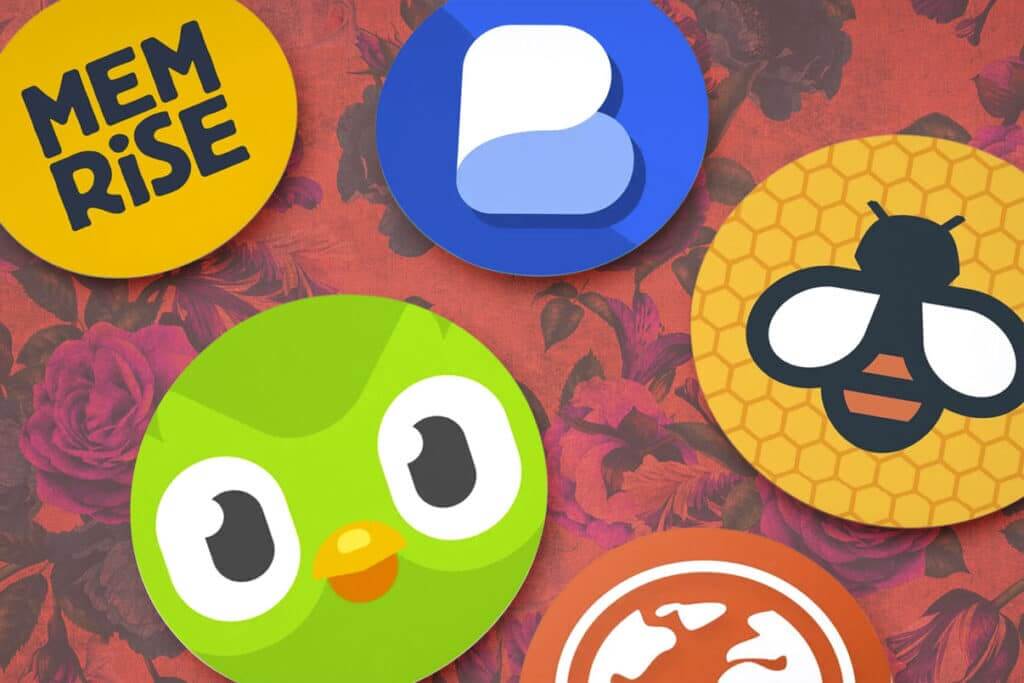
Top Language Learning Apps of 2024
Here are some of the top language learning apps of 2024, each offering unique features and benefits:
- Duolingo: Known for its gamified approach, Duolingo makes learning a new language fun and engaging. With a variety of languages available and interactive exercises, it’s perfect for learners of all levels.
- Babbel: Babbel focuses on conversational skills, providing real-life dialogue practice and cultural insights. Its structured courses are designed to help learners speak confidently in their new language.
- Rosetta Stone: A pioneer in language learning technology, Rosetta Stone uses immersive techniques to teach languages. Its emphasis on pronunciation and language immersion sets it apart from other apps.
- Memrise: Memrise combines language learning with memory techniques, offering a range of vocabulary and grammar exercises. Its use of spaced repetition helps reinforce learning and improve retention.
- Busuu: With a strong focus on interactive practice and community feedback, Busuu offers personalized learning plans and opportunities to practice with native speakers.

Comparing the Apps
Here’s a comparative table to help you evaluate the top language learning apps of 2024:
| App | Features | Pricing | Strengths | Weaknesses |
|---|---|---|---|---|
| Duolingo | Gamified learning, wide language selection | Free with premium options | Engaging and interactive, accessible for beginners | Limited depth in advanced topics |
| Babbel | Conversational practice, cultural insights | Subscription-based | Focused on practical language use, structured courses | Less variety in languages |
| Rosetta Stone | Immersive techniques, strong pronunciation focus | Subscription-based | Comprehensive immersion, high-quality content | Can be expensive |
| Memrise | Memory techniques, vocabulary and grammar focus | Free with premium options | Effective memory aids, diverse content | Limited speaking practice |
| Busuu | Interactive practice, community feedback | Subscription-based | Personalized learning plans, native speaker practice | Less engaging interface |
Why Use Language Learning Apps?
Language learning apps have revolutionized the way we approach learning new languages. For hobbyists and students alike, these apps offer convenience, flexibility, and a wealth of resources right at your fingertips. They provide a structured approach to language acquisition, featuring interactive exercises, engaging content, and personalized feedback to enhance your learning experience.
For those learning as a hobby, these apps offer a fun and immersive way to explore a new language, allowing you to practice speaking, reading, and writing at your own pace. Students, on the other hand, benefit from the comprehensive resources and practice opportunities that complement their formal education, helping them to reinforce their skills and achieve their academic goals.
Choosing the Right App for You
Selecting the best language learning app depends on your personal goals and learning preferences. Consider what aspects of language learning are most important to you—whether it’s speaking practice, cultural insights, or memory techniques.
If you’re looking for a fun and engaging way to get started, Duolingo’s gamified approach may be ideal. For those who want to focus on conversation skills, Babbel provides practical dialogue practice. Rosetta Stone’s immersive techniques are great for deep, comprehensive learning, while Memrise’s memory aids can help reinforce vocabulary and grammar. Busuu offers a balanced approach with interactive practice and community feedback.
Tips for Effective Language Learning
To maximize the benefits of language learning apps, consider these best practices:
- Set Clear Goals: Define what you want to achieve with your language learning and set realistic milestones.
- Practice Regularly: Consistent practice is key to making progress. Incorporate language learning into your daily routine.
- Engage with Content: Use the app’s features to practice speaking, listening, reading, and writing in context.
- Join Language Communities: Participate in forums or social media groups to practice with others and receive feedback.
- Supplement with Other Resources: Complement your app-based learning with books, podcasts, and language exchange opportunities.






